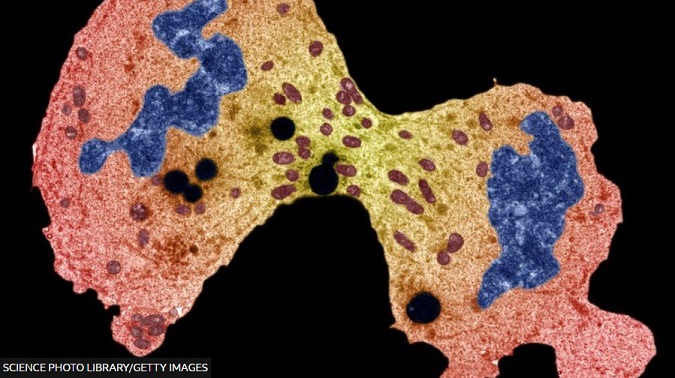
UK scientists have undertaken a huge "archaeological dig" of cancer in the UK, analysing the complete genetic make-up - or whole genome sequence - of tumours from about 12,000 patients.
The team says the unprecedented amount of data allowed them to uncover new patterns in the DNA of cancer - hinting at causes that are not yet understood.
They add that the genetic clues will ultimately help improve diagnosis and treatment.
The research is published in Science.
Cancer can be thought of as a corrupted version of our own healthy cells - mutations to our DNA change our cells until eventually they grow and divide uncontrollably.
Traditionally many cancers have been categorised by doctors based on where they are in the body and the type of cells involved - but whole genome sequencing can provide another layer of key information.
Whole genome sequencing is relatively new, but is already available on the NHS for a small number of specific cancers, including some blood cancers.
The NHS long-term plan aims to make it more widely available, through the NHS Genomic Medicine Service.
Lead researcher Prof Serena Nik-Zainal, a consultant at Cambridge University Hospitals, told the BBC the study was like an "archaeological dig" of people's cancer.
She added: "We can see the patterns or imprints in the field of their cancers - like dinosaur footprints - of what is going wrong with their cancers.
"And everyone's cancer is different. To know we can personalise each person's cancer report means we are a step closer to personalising treatment for them."
Led by the University of Cambridge, the research team analysed anonymised DNA data provided by the 100,000 Genomes Project - an England-wide project to sequence the whole genomes of patients affected by cancer and rare diseases.
With thousands of genetic changes seen in each tumour they analysed, researchers were able to detect specific combinations of genetic alterations - so-called "mutational signatures" - that may be key to cancers developing.
Comparing the data to other international genetic cancer projects, they confirmed patterns that are already known, and uncovered 58 new ones.
Some signatures can provide clues about whether patients have had exposure to environmental causes of cancers - such as smoking.
Others provide more information about genetic abnormalities that may be amenable to specific drugs, researchers say.
Researchers also created a computer programme to help scientists and doctors check whether patients who have had whole genome sequencing have any of the newly discovered mutational clues.

